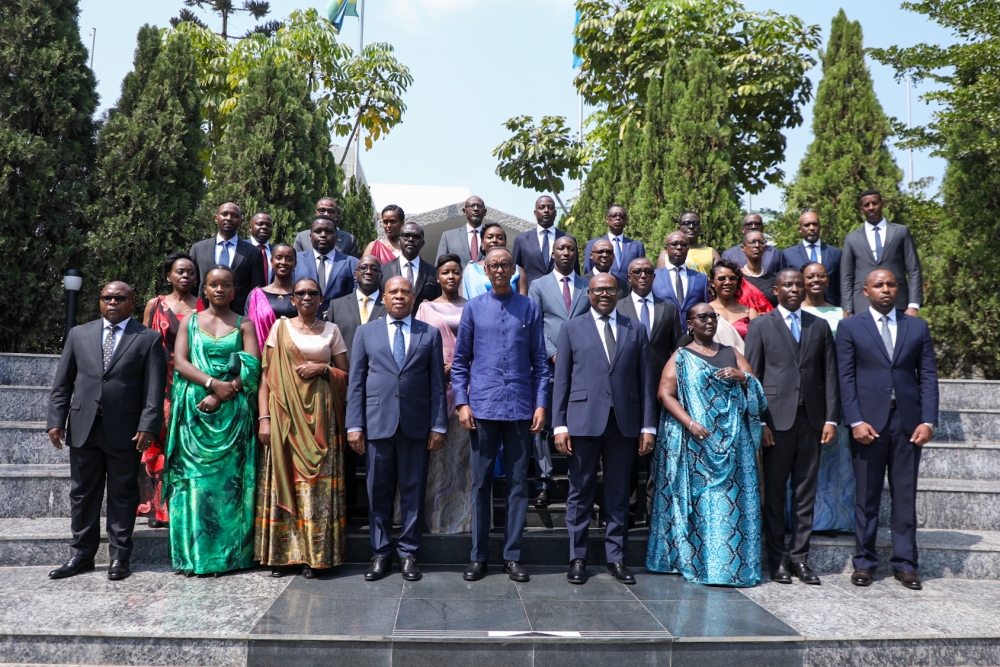Comprehending and accepting reality has been one of man’s major challenges since time in memorial. One of the imperative reality postulates that my values, our values, aren’t about pointing fingers but offering a helping hand. Coming to think of this makes me wonder; is it realistic that ‘when a man points a finger at someone else, four of his fingers are pointing at himself.’?


Comprehending and accepting reality has been one of man’s major challenges since time in memorial. One of the imperative reality postulates that my values, our values, aren’t about pointing fingers but offering a helping hand. Coming to think of this makes me wonder; is it realistic that ‘when a man points a finger at someone else, four of his fingers are pointing at himself.’? It all translates to ‘blame game’. Yes, blame- an easy thing to assign, but takes a lot of effort to avoid. Blame is a concept of ritualised opposition –agonism – where almost any issue or problem is approached in an adversarial way. An agonistic response lacks a moral underpinning; it is habitual, and derails the integration agendum.It has now become a song that the success of the East African Community will be achieved through political will, adherence to good governance, and market driven economic policies with the support of a strong private sector. This is practically true, nevertheless an individual endeavor that is motivated and purpose driven is equally required in implementing and executing the EAC prospects.I have heard more than once individuals in member states complaining of the slow implementation of EAC policies and often ask; who is to implement them? Many squabble that it is the role of those in power or those charged with the responsibility of ensuring that integration is successful. Without any doubt whatsoever, I believe that this kind of indulgent to some extend does not reap any decisive result. The ministry of EAC at the top level with the mandate of coordinating the integration process in Rwanda, tireless, plays its role in ensuring that Rwanda is well represented and its concerns addressed at the executive meetings. It is sad to note that even at the heart of sensitisation campaigns most people still complain of having not experienced any fruits of integration and ever pointing fingers at the top officials for failing to bring the tenets to the fore.Yes, the top executives have and continue to accomplish their part and I don’t think it is wise for anyone to go on complaining about not seeing any transformation since Rwanda joined EAC.For us to experience an incredible integration, individual role has to take effect. For instance, an individual working at any border post should work hard and ensure that clearance is swift. Those importing goods from other countries should receive them not later than three days and obey the transit rules in a bid to enhance integration ideals and make it a sweet song. Individuals working at various offices charged with implementation, should all work indefatigably without pointing fingers, and even go extra mile in ensuring that the set goals are realised. Think of this, if we could allow ourselves and our children to study and work anywhere in the EAC member states, we would promote social integration and encourage free mingling without any regional bias.In essence, instead of you pointing fingers to those we think are responsible in carrying out integration concepts, you should be asking yourself; ‘what have I done towards integration?The world lies before us, and we can make of it, anything that we desire. All that is required is that we recognise this, and then proceed to make our dreams of economic, social and intellectual excellence, more than mere dreams. Courage to see how things could be, and then using the power of your imagination to make those things happen, is what poverty and ignorance fear most.If we do not come to an understanding that successful integration begins with ‘I’, it will cost us fire and water to successfully integrate. Integration is a process that may take a long period of time to be fully realised but if each individual plays their role well, the years might be reduced to what will make all of us happy.Looking at EAC objectives, it suffices to argue that the community aims at increasing the social welfare of East African citizens through regional economic, social, political and cultural integration. EAC is the vehicle that is determined by all individuals in member states to transform the lives of East African citizens from poverty to a better standard of living. Now! When was the last time you challenged yourself to let go of blame and take responsibility for a noble cause. Pick one time in your life where you blamed someone or something else for holding you back or getting in your way, and ask yourself... "Who really was in my way?” The answer may surprise you. It may set you free. When you change the way you look at things – the things you look at change!




